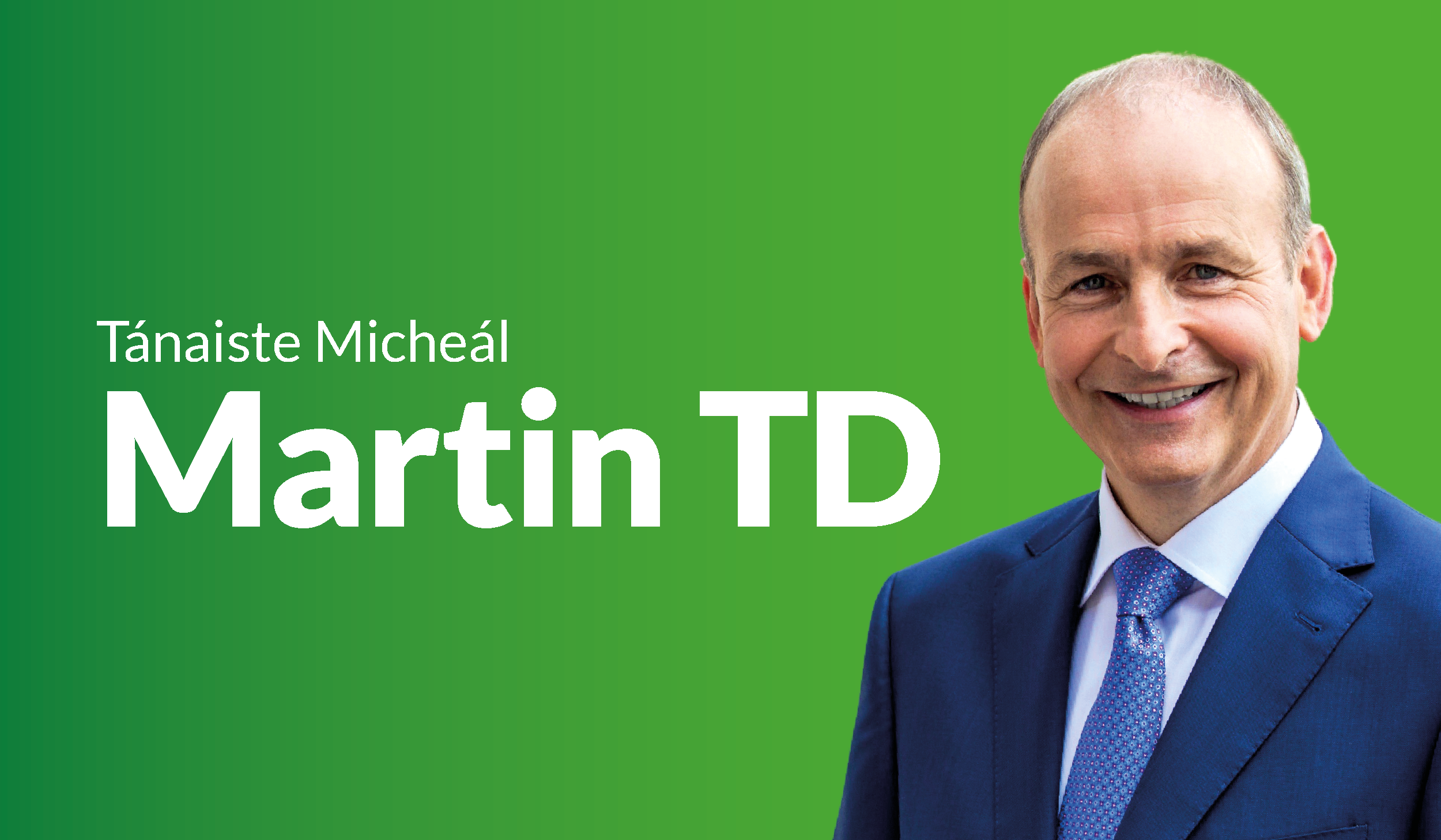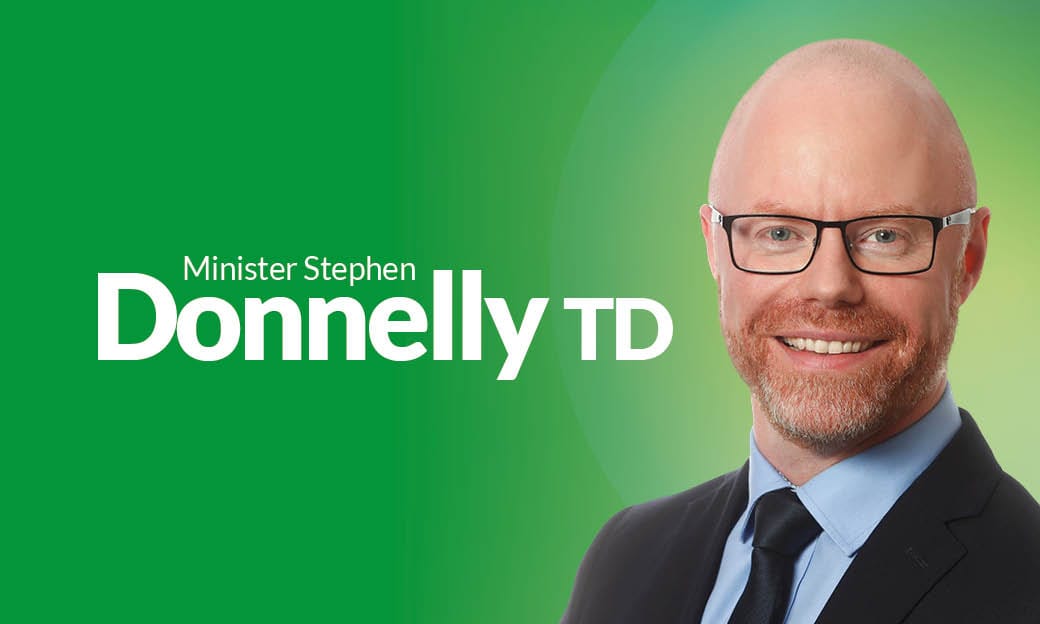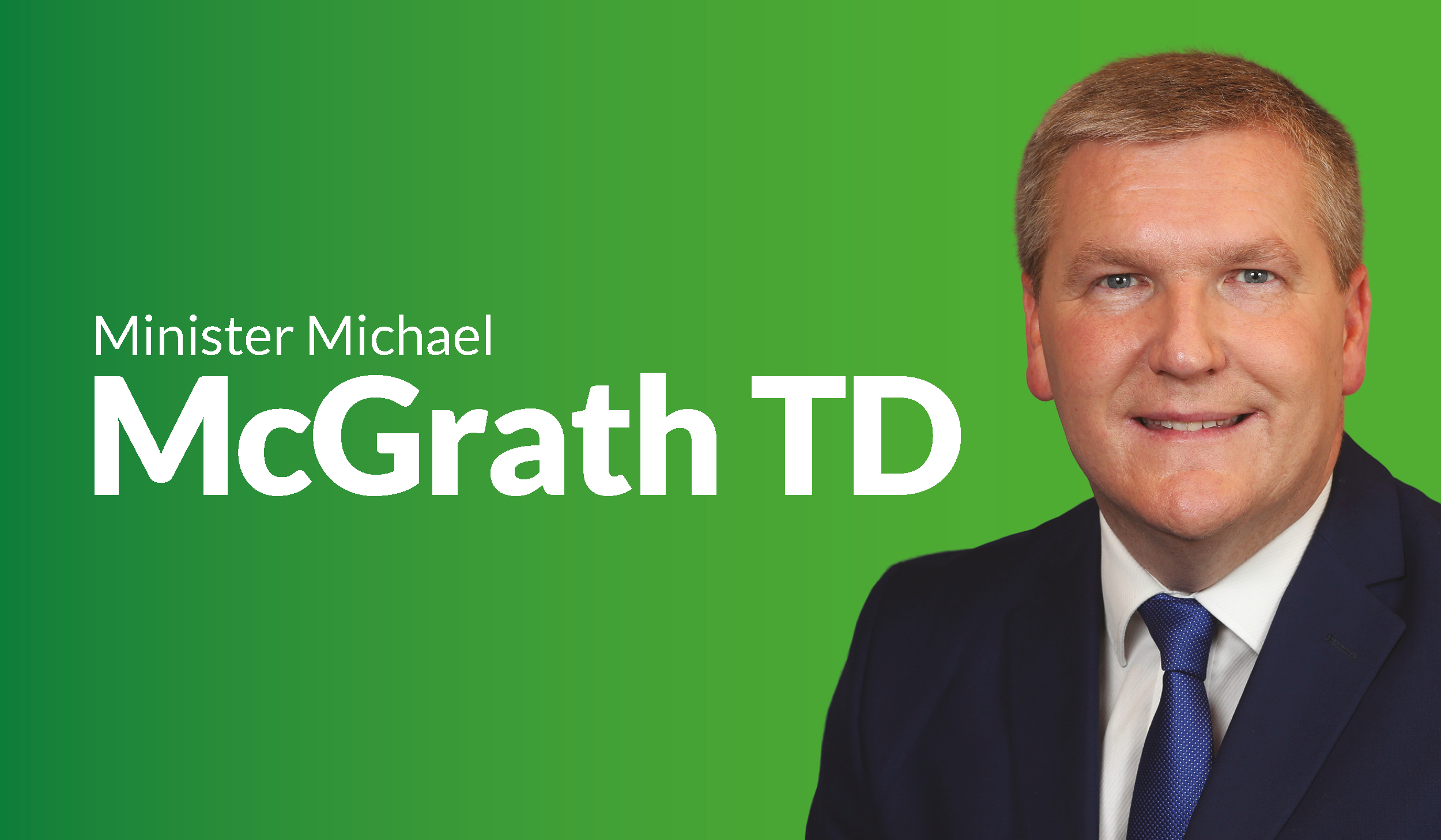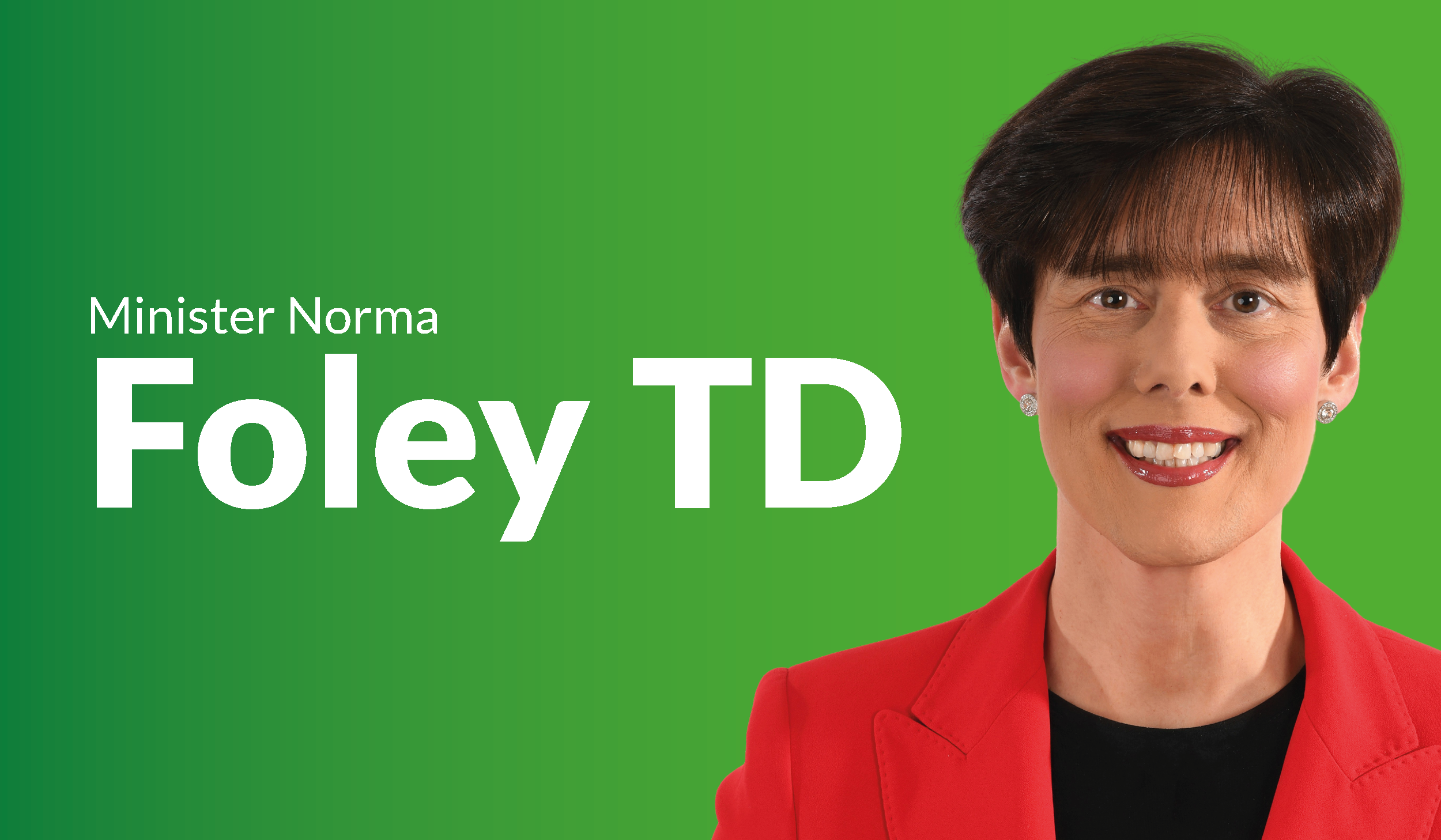Speech by An Tánaiste, Micheál Martin T.D., Minister for Foreign Affairs and Minister for Defence at the Fianna Fáil 1916 Commemoration at Arbour Hill
Published on: 21 April 2024
A Chairde,
When our party was founded 98 years ago it immediately began our tradition of coming to this hallowed place. They assembled to honour those whose vision and bravery had begun our revolution only ten years beforehand.
In the early years the crowd was dominated by men and women who had a deep personal connection to the heroes buried in this plot. They had stood side by side in the cause of Ireland’s freedom, but they had also shared so much more in young lives driven by idealism and community.
And it was in those early commemorations, defined by a remembrance of still dearly-missed friends and family, that we see the unique and still relevant spirit of 1916.
For them this was not a place of anger or a place to define Irish identity in a narrow or fixed way. It was a place to remember a vision of an inclusive Ireland which worked in cooperation with others.
Sna deich mblianta roimh an Éirí Amach, bhí Mac Piarais agus a chomhghleacaithe dírithe ina saolta poiblí ar chúis an tsaoil chultúrtha náisiúnta.
San fheachtas seo, mar a bhí le mórán rudaí eile,lean siad imeachtaí agus gluaiseachtaí Eorpacha i gcoitinne.
Bhí náisiúin ar fud na hEorpa ag troid i gcoinne agus ag easaontú le cumhacht agus forlámhas na gcultúr impiriúlaíoch, agus bhí náisiúin ag obair chun an béaloideas ina dtíortha a neartú agus teangacha a chur chun tosaigh.
Go dtí an lá atá inniu ann, an rud a théann i bhfeidhm go mór orm faoi na fir agus na mná bainteach le mile naoi gcéad a sé déag ná an dearcadh a bhí acu ar an athbheochan cultúrtha mar shlí chun pobal aontaithe ag tacú is ag obair le chéile a chruthú.
Dhiúltaigh siad don náisiúnachas cúng ionsaitheach a bhí le feiceáil in áíteanna eile.
Don pháirtí poblachtach seo, beidh ár dteanga náisiúnta agus ár gcultúr mar aidhm láidir lárnach againn sa Rialtas.
Agus mar aon leis na glúinte a chuaigh romhainn, feicimid an teanga agus an cultúr ag síorfhorbairt agus ag dul chun cinn i slí nua-aimseartha i gcónaí.
Táimid dírthe ar dhul cinn cinn dearfach láidir a dhéanamh, go háirithe ag tacú leis an ré nua den teanga Ghaeilge mar mheán teagaisc ag fás is ag forbairt inár scoileanna.
While we as a society continue to honour 1916, we too rarely reflect on its unique character both in its time and the nationalist republicanism which it espoused.
From the very words of the text - “Irishmen and Irishwomen” - a radical approach was set out. It became the first declaration of independence of any country to insist that men and women both formed part of the political nation and should join in shaping its future.
The insistence that the Irish nation contained more than one tradition was also unique. Nationalism at that time was mostly focused on defining an exclusive community with a single narrative, a single culture and a single political programme.
Yet the visionaries of 1916 rejected this. Deeply proud of Irish culture, they nonetheless defined its strength as being found in its diversity rather than its exclusivity.
They also sought a republic which would be confident enough to work closely with others in the international community. A successful Ireland to them would not be one which sought to assert its superiority or separateness - No, they believed in respect and cooperation between nations.
This powerful idea - of asserting a national identity while also making it more complex and challenging - is for me the core of the true spirit of 1916.
This is why the overwhelming majority of the men and women who participated in 1916 committed themselves to finding new ways forward. They never accepted that the actions required in our struggle for independence should remain unchanged until everything was achieved.
The text of the Proclamation reflects the language of a moment in time, but its spirit is timeless.
It is a republicanism which seeks to respond to the needs of today and refuses to be unchanged and fixed in time.
And it also involves a demand that republicans be self-critical, that they be capable of insisting on certain standards. The heroes of 1916 very directly and in powerful language, rejected the idea that you could do whatever you wanted in the name of the Republic.
“we pray that no one who serves that cause will dishonour it by cowardice, inhumanity, or rapine.”
These are not small words.
These are not empty words.
It is impossible to miss their profound relevance to the illegitimate campaign of the Provisional IRA and the refusal of those who honour that campaign to acknowledge the terrible impact of their actions.
Central to the idea of a lasting peace and reconciliation on our island has always been acceptance that the truth of what happened in the past must be revealed. The deep trauma experienced by those who lost loved ones and the lasting divisions in communities can only begin to be healed when there is a sincere and open acknowledgement of what was done.
Along with other parties committed to democratic republicanism, in government and in opposition we have taken the approach of openness about any legitimate questions which were raised about the Irish government’s actions. This has, unfortunately, not been the approach of others.
We have continued to press the British government to hold to account those who committed crimes in their service – and we strongly reject the idea of allowing these to be swept under the carpet. Collusion as well as brutal and deadly action were never legitimate responses. They were never justified and they achieved nothing but further embedding division.
Unfortunately, the veil of silence and the systematic refusal to acknowledge past crimes remains the core position of supporters of the Provisional IRA. The political leaders of their movement do often come up with generalities and weasel words intended to give the appearance of regret. Yet they continue to honour the perpetrators of some of the worst crimes ever seem on this island.
The Kenova inquiry into murders and other crimes committed during in the three decades before the ceasefires was created to examine cases where there was no closure – and where victims and their families wanted transparency and justice.
Headed for most of the time by Jon Boutcher, his detailed and sincere investigations earned the trust and support of victims and their families. The report which was recently published has received nowhere near the attention it deserves – and we have so far heard almost nothing from those criticised in the report.
Many elements of the report are very difficult to read because of what they describe. It points to acts by agents of the British state for which there must be accountability. And it comprehensively pushes aside the myth-making about the Provisional IRA by reminding us all that they “were responsible for torture, inhumane and degrading treatment and murder” and “These assaults and human rights violations were perpetrated to intimidate and subjugate the community”.
What is particularly disturbing is that a quarter of a century after the Good Friday Agreement efforts to prevent justice and transparency remain. As the report says “Some who have engaged and cooperated with Kenova continue to face questioning, pressure, intimidation and threats from those opposed to cooperation with ‘the state’”.
The complete silence about this from the political organisation which was founded to represent the interests of the Provisional movement is almost shocking.
It is the general policy of the party which today uses the name Sinn Fein to attack anyone who challenges it about the crimes of the Provisional IRA and the justice which it denied to its victims. While their entire approach to politics is based on attacking others, when you challenge them they claim it’s you who has the problem and that you are obsessed. They refuse to accept that they can ever be asked legitimate questions.
There would be an easy way to end this as a serious political issue. Stop honouring the perpetrators of these vile crimes. Stop promoting people who refuse to cooperate in investigating crimes even when they took place after the peace agreement. Call for justice for all victims and not just your own.
And I would also add, stop your new revisionism – your attempt to justify the past and your cynical effort to claim ownership of those parts of Irish history which have nothing to do with you.
It is genuinely amazing how far this new revisionism goes. They try to claim a link to Constance Markiewicz, suggesting that she would have supported their behaviour in the last fifty years. Yet she was the chairperson of the founding meeting of Fianna Fáil, served as a Fianna Fáil TD and clearly rejected their beliefs.
We remain committed to the vision set out by her and others in our great founding generation – look for new ways of building an inclusive Ireland.
We profoundly disagree with the idea that reconciliation on this island is not a priority – or that it can be reduced to one campaign.
How can we possibly expect to build a new future if we do not first do the hard, uncomfortable work of challenging ourselves to understand others and to build practical connections.
That is why we are pushing forward with the first ever programme of investment and research to build links and understanding between both parts of our island.
The Shared Island Initiative is already delivering a challenging and ambitious agenda. Investments like the A5 to the North-West, development of the University of Ulster and the Narrow-Water Bridge represent serious progress delivering benefits to all communities.
And the programme of research which is well underway is building the first ever evidence-based picture of what the exact differences and similarities are between us.
For far, far too long debate has been based on people making broad assertions about the details of social and economic life on both sides of the Border. For the first time we have proper work completed on profoundly important issues like school-completion, productivity, health services, early childhood education, energy supplies and attitudes to public institutions.
I warmly welcome the positive engagement with this that we have had from the academic community, civic society and others. It would be a terrible error if the suggestion of diverting this funding into other activities were ever accepted and I am pleased that our partners in government agree with us on this.
One of the independent research reports which is particularly important has dealt with housing supply.
The shortage of homes to buy or rent is acute on both sides of the Border. A major difference though is that we have developed and are implementing a strategy which is dramatically improving the supply of new homes. Unfortunately, Sinn Fein’s period in charge of housing in Northern Ireland didn’t manage to extend beyond a short consultation document, and other actions actually directly pushed up prices.
People are impatient. They see the difficulty which far too many experience in finding or affording a home and they ask if anything will ever change.
And the evidence is now absolutely clear that change is happening. We have to keep up the pressure. We have to continue to innovate. We have to show that long-term problems can be overcome. But no one can deny that we are seeing progress towards overcoming our housing shortage.
This is a new era in home building in Ireland. Already over 100,000 new homes have been delivered since we came to office and sought responsibility for the housing portfolio. Last month a remarkable 4,900 new homes commenced building.
Our approach is that action is needed on every element of housing, from social housing and private rental to private home ownership. We can only deliver housing for all if we respect the needs, abilities and preferences of difference groups in our society.
Fianna Fáil has, from its first days in government ninety years ago, up to today been committed to providing social housing for people. There has been a dramatic increase in the number of social homes available – as well as a comprehensive programme of renovating social homes.
Where we differ profoundly from Sinn Fein and its policy, is that we believe that we cannot only have social homes. We cannot ignore the legitimate aspiration of people to be able to afford to buy their own home.
During this Dáil we have introduced a range of new measures to help first time buyers and to promote affordable homes for people on average and lower incomes. Every one of these schemes has been opposed by Sinn Fein.
If you accept for one moment that housing supply could be maintained with their policies, and this is not credible, the main opposition party is effectively proposing that all housing output should be directed to social housing.
We believe that home ownership is a legitimate aspiration and that sustained state action is required to help people to find and afford a home to buy if that is their wish.
Direct aid for renters, the provision of social homes and action on every element of housing supply – this is the way to overcome our housing crisis, and for the first time in many years, we’re beginning to see a step-change in the availability of new homes. Pushing on with this work , delivering further sustained progress, this is a core priority for us.
During this week the verdict of the new inquest into the Stardust disaster vindicated the quest of victims and their families for acknowledgement of what happened on a night which is seared on the memory of our country. The disaster led to major changes in many laws and regulations, but the inquest and subsequent inquiry clearly failed in acknowledging the full truth.
The government will respond fully and comprehensively respond to the findings of the new inquest. We will address the failings of the state then and in the years which followed. And we will make a formal and complete apology to the victims and their families for those failings.
The republic which we have built since 1916 has achieved many historic things. It has overcome dramatic hurdles to reach a stage where we are one of the world’s oldest democracies.
Yet the essence of being a republic is that we must be willing to acknowledge problems. We must always be focused on building a better Ireland – and be open and honest about both our successes and our failings.
In the service, the ideals and the vision of the great leaders buried in this place we find the inspiration for modern republic as relevant today as it ever was.
-ENDS-



